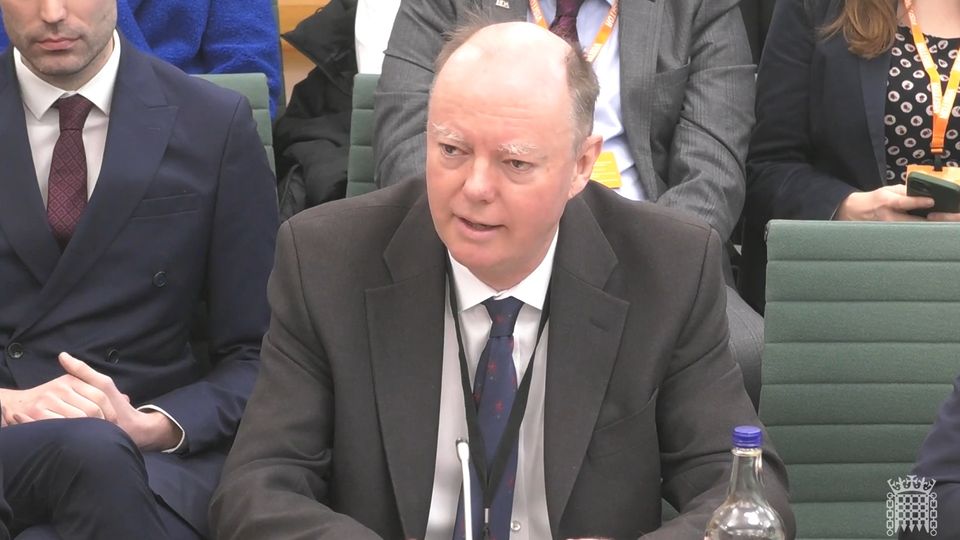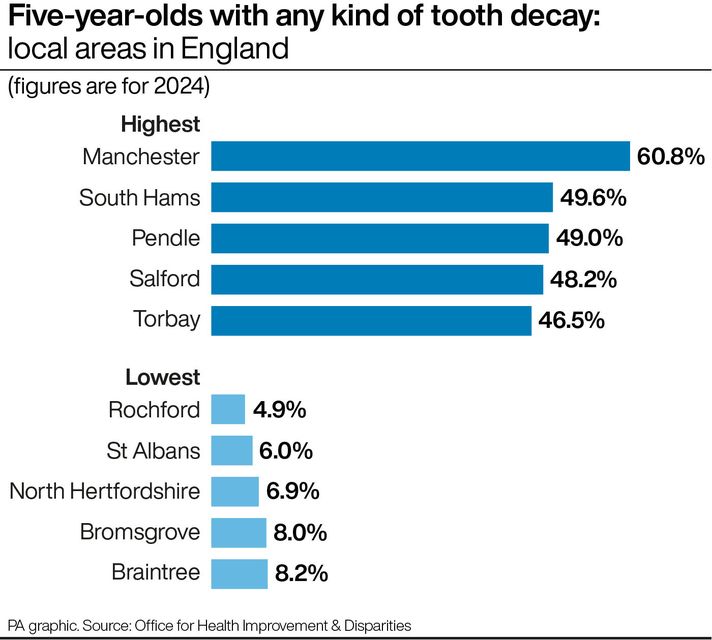NHS dentistry is “very weak”, England’s chief medical officer has said as he warned that a lack of access to dentistry for children can set them up for a “lifelong poor dental health”.
Professor Sir Chris Whitty, who is also the interim permanent secretary at the Department for Health and Social Care, said that NHS dentistry is not up to the same standard as other parts of the health service, adding that the last time it was operating “as it should” was around three decades ago.
Sir Chris, along with NHS England chief executive Amanda Pritchard, agreed that the current contract for dentists to deliver NHS dental services is “not fit for purpose”.
Ms Pritchard told the committee that the plan to recover NHS dental services in England was “not successful” and the document “overstated” the number of new patients who would be given treatment.
“The NHS dental system is very weak and has got weaker over time,” Sir Chris said.
“I think we would all say this is a problem, particularly for those who find it difficult to get dental services when they need them in states of emergency.”
“So I think everyone should agree that the NHS dentistry is in a much weaker state than most other areas of the NHS.”
Sir Chris added: “The last time I think most people in the country would consider that NHS dentistry was operating as they would anticipate it should do was probably in the early 1990s and the changes since then have all tended to either do nothing or make things worse.”
Professor Sir Chris Whitty was quizzed about the state of NHS dentistry by MPs on the Public Accounts Committee (House of Commons/PA)
Ms Pritchard added: “Nobody wants to see the current state of affairs continue any longer than it needs to.”
Asked about dental decay in children, Sir Chris said one of the lines of defence against rotten teeth is visiting a dentist at an early stage for intervention, adding: “It is a very sad reality that the commonest procedure that the children go into hospital for is for a destruction of teeth due to severe dental caries (tooth decay), which of course sets them up for lifelong poor dental health.
“Prevention is absolutely critical.
“Dentists being able to get to children at the earliest point and deal with problems early is critical.”
Figures released this week show the proportion of five-year-olds with rotting teeth is rising in the North East, London and the South West.
(PA Graphics)
Official data shows as many as six in 10 children in some areas have rotting teeth by the age of five, with clear differences between poorer regions of England and the more affluent.
Meanwhile, health officials were quizzed about the NHS dental recovery plan, which was published by the Conservative government in February 2024.
But in a letter to the committee, Ms Pritchard and Sir Chris said there was an “error” in the modelling which supported the dental recovery plan.
“We estimated that 1.13 million new patients could be seen within the £200m of new funding, however the after correcting for the error above, our revised calculation now confirms that (around) 690,000 additional treatments were in fact affordable,” the letter states.
The cost for 1.13 million new patients would be around £33 million more, they said, adding: they “remain confident that the 1.5 million additional treatments set out in the plan… were achievable”.
Key components of the plan include: a new patient premium (NPP) to drive up the number of people able to access NHS dental services; ‘golden hellos’ to incentivise dentists to practice in under-served areas; and an “uplift” to the amount dentists were paid for NHS procedures, also known as units of dental activity (UDA).
In the letter, Ms Pritchard and Sir Chris added: “Even after correcting for this error, the evidence shows that the NPP has not met its objective of increasing number of new patients seen. The scheme is expected to end as planned on March 31 2025.”
Sir Chris told MPs that the new patient premium “clearly failed” and “did not work”.
Ms Pritchard said that there were “fewer new patients this year”, but “UDA activity is on track to be about 1% higher this year than it was last year”.
MPs heard that so far only 39 dentists have received a golden hello, although officials said that time was needed to see whether this policy was a success.
They also heard that while the number of dentists has gone up, the number of those providing NHS care has decreased.
Ms Pritchard said: “This was not a successful plan.”
Commenting, Shiv Pabary, chairman of the British Dental Association’s general dental practice committee, said: “Government says it’s ‘going for growth’, but Treasury policy is doing the exact opposite for dental care.
“The coming spending review will either sink or save NHS dentistry.”

